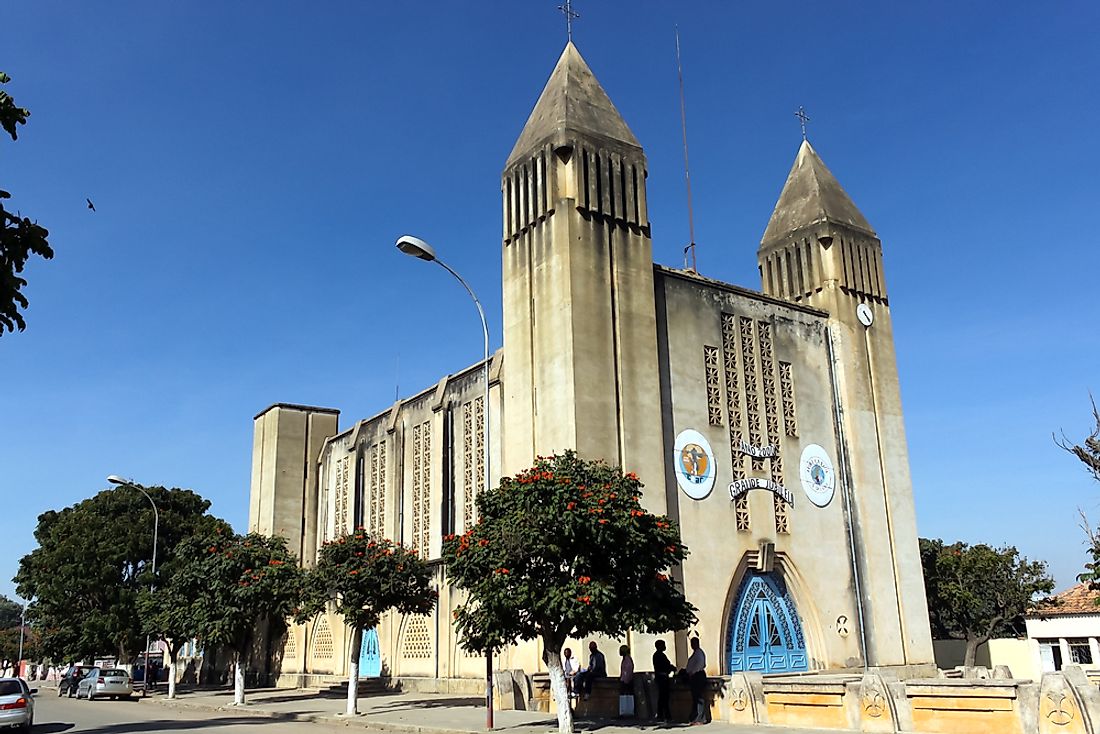Religious Beliefs And Freedoms In Angola

The Constitution of Angola ensures religious freedom to its residents. Currently, there are 85 recognized religions or denominations of the same religion. The religious groups with less than 100,000 practitioners have not been prohibited from practicing their religious but do not enjoy the same legal protections as recognized groups. This article takes a look at some of the most widely practiced religions throughout the country.
Roman Catholic Christianity
Introduced by Portuguese missionaries and colonizers, Roman Catholicism is the most widely practiced religion in the country today. During many years of the colonization, the Catholic church was responsible for providing education to the public thereby increasing its follower base. During the 1970’s, after the independence of Angola, the newly formed Angolan government operated under the idea that religion had no place in modern-day societies although it had also guaranteed its residents the freedom to practice religion as they deemed fit. This separation of Church and State caused a conflict with the Catholic Church and in 1977, they filed a complaint with the government that religious freedoms were being violated. They complained about the educational system and the removal of the Catholic radio broadcasting station. The government denied such accusations and local media associated the Catholic Church to Portuguese colonization. Today, many people who identify as Catholic, 60% of the population, also adhere to traditional beliefs that are rooted in natural and supernatural powers.
Indigenous Southwest African Beliefs
As previously mentioned, many self-proclaimed Catholics also believe in traditional African religions. Likewise, many people who identify with these indigenous religions (47% of the population), also identify as either Catholicism or Protestantism. Specific indigenous beliefs are varied and with several differing religions that fall under this category.
The generally shared ideas of these belief systems include the existence of a principle God, ancestral spirits, and natural spirits. The specifics behind each of these beliefs, however, are quite varied. Some indigenous religions believe that the principle God was responsible for the creation of life, other groups do not. Ancestral spirits, it is believed, exist to help their descendants and family members. Each belief system has a different way to honor these ancestors to ensure their devout protection. Spirits of nature may help anyone within the vicinity of the spirit’s source (be it a tree, rock, water, or wind). When people or their families suffer hardships, like illnesses or financial loss, they often believe it was a result of witchcraft, magic, or even an angry spirit acting against them. This is determined by a specific individual within the community, a kimbanda, who is thought to carry the power to identify the root of the problem. The position of kimbanda is often inherited.
Other Religious Groups
Protestant Christians are the next largest religious group with 15% of the population as followers. As with Catholics, many of these individuals also prescribe to traditional, indigenous belief systems. Protestant missionaries came to the country during colonial times as well and could also open schools and teach the public, but only if they did so in the Portuguese language. This religious group was heavily involved with political movements that supported the movement for independence.
Making up less than 1% of the population each are religions that have not yet been formally recognized by the government. These include Mormonism, Jehovah Witness Christianity, Sunni Islam, Baha’i Faith, and Judaism.
Religious Beliefs And Freedoms In Angola
| Rank | Belief System | Share of Angolan Population |
|---|---|---|
| 1 | Roman Catholic Christianity | 60% (includes many concurrently listed as indigenous practitioners) |
| 2 | Indigenous Southwest African Beliefs | 47% (includes many concurrently listed as Catholics or Protestants) |
| 3 | Protestant Christianity | 15% (includes many concurrently listed as indigenous practitioners) |
| 4 | Latter-Day Saint Christianity (Mormonism) | <1% |
| 5 | Jehovah's Witness Christianity | <1% |
| 6 | Sunni Islam | <1% |
| 7 | Baha'i Faith | <1% |
| 8 | Judaism | <1% |











